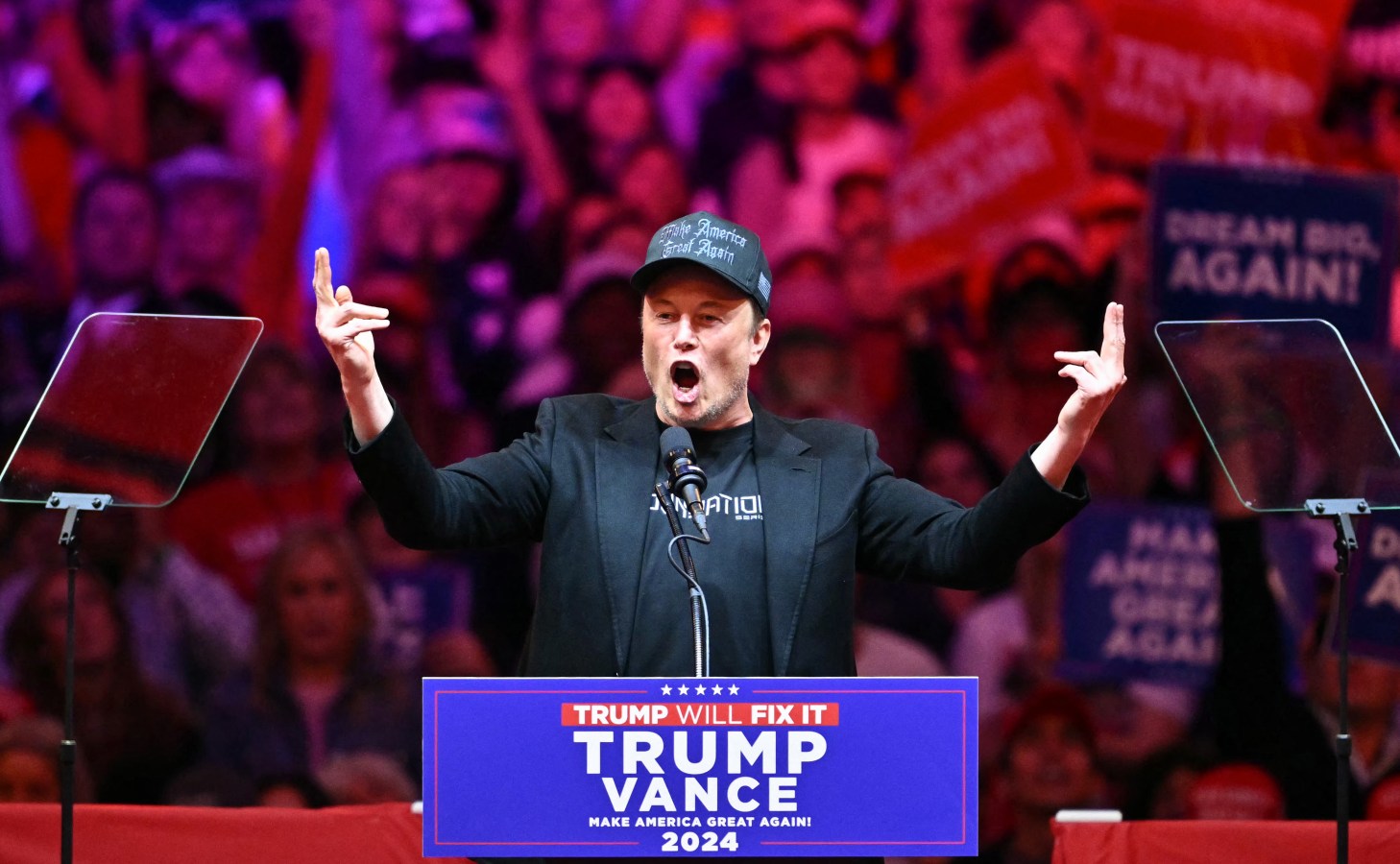Thomas Peterffy explains why his stock brokerage has joined the election betting craze—and takes a dig at his upstart competitors.

On Thursday October 3, the stock trading platform Interactive Brokers Group introduced election forecast contracts, becoming the first major U.S. financial institution to offer customers the ability to place bets on political races.
Customer uptake has been immediate. As of yesterday afternoon, 16.9 million contracts have been traded on ForecastEx LLC, a wholly-owned subsidiary operating the new election contracts. Traders can place wagers on whether Kamala Harris or Donald Trump will win the presidential election, on which party will control the U.S. Senate and House of Representatives, and on individual Senate races in key battleground states like Arizona, Michigan and Pennsylvania.
Thomas Peterffy, founder and chairman of Interactive Brokers, insists that ForecastEx is more than just a glorified gambling business and new revenue stream for his investment empire. The 80-year-old entrepreneur, who is one of the 25 wealthiest Americans with an estimated $45 billion net worth, argues that it’s a way of teaching people to think rigorously about probabilities in their everyday lives.
“The final goal is to get people into thinking probabilistically,” Peterffy told Forbes in a video interview from his home office in Palm Beach, Florida. “Every day, we make decisions about, ‘Should I do A or should I do B?’ We have to evaluate the probabilities. There is a rational way of conducting our lives and an irrational way, and most people go about it irrationally. It has huge social implications.”
Interactive Brokers Group, which Peterffy founded in 1993 as a discount brokerage, generated $4.34 billion in revenue last year. The 1% commission it charges on ForecastEx contracts will make up a tiny fraction of revenues this year: Those 16.9 million contracts traded in its first two weeks generated just $169,000 in revenue. But Peterffy says this is a long-term play, and that in twenty years, he expects ForecastEx will generate “billions” of dollars in annual revenues.
The contracts make it simple to bet on political events, Peterffy explains. Prices vary from $0.02 to $0.99, based on how likely people think each outcome is. If they predict correctly, the contract pays out $1; if they’re wrong, it pays out nothing.
In addition to political and election bets, Interactive Brokers has rolled out contracts for traders to wager on movements of economic indicators (such as the federal funds target rate, U.S. housing starts and consumer price index), and on critical climate data, such as future global temperatures and levels of atmospheric carbon dioxide. “These are the most crucial questions in our lives. People have very strong feelings about it, but nobody is willing to really deal with it in a rational manner,” claims Peterffy. “If we could get some sense into people as to how urgent the climate issues are, then they would come to understand how to deal with it.”
Peterffy already faces stiff competition. Polymarket, which describes itself as the world’s largest prediction market, has raised $70 million in funding from bigwigs like billionaire investor Peter Thiel’s Founders Fund. The blockchain-based platform is on track to process $1 billion in wagered predictions this year. Kalshi, another venture-funded prediction market, received a favorable ruling in a lawsuit brought by the Commodity Futures Trading Commission earlier this week, when a federal appeals court lifted a stay on Kalshi’s derivatives contracts. The CFTC had alleged that Kalshi’s derivatives products served no “economic purpose” and undermined U.S. election integrity.
Both Polymarket and Kalshi allow users to place bets on pop culture and other miscellaneous events. For example, as of yesterday, Polymarket users had bet $1.3 million on whether Trump will go on the Joe Rogan podcast before the election (the odds are 71% he does) and $72,000 on whether a Sean “Diddy” Combs sex tape will be released before November (the punters give this just an 11% chance). Meanwhile, Kalshi users had bet $160,000 on Oscar nominations for best picture and $47,000 on the release date of the video game Grand Theft Auto 6.
Peterffy says that Interactive Brokers distinguishes itself from its competitors by only offering bets on “serious” topics.
“We’re not listing questions like, ‘Who will be the greatest rockstar?’ or, ‘How many tickets will they sell?’ or ‘What’s going to be the best movie?’ Our contracts are about serious questions that have huge economic and social implications,” Peterffy says, adding that all of Interactive Brokers’ contracts are tied to official government data and reports. “We have to rely on government agencies to give us the answers to the questions, otherwise it’s open to manipulation.”
Peterffy expects ForecastEx to bring in new traders for Interactive Brokers’ core stock brokerage business. To date, roughly half of those who placed bets on ForecastEx are new customers for Interactive Brokers. “I thought that it would be a vehicle to bring more people onto the exchange, because the election is an interesting thing to make a bet on,” he says.
Asked about his own election plans, Peterffy, who grew up in socialist Hungary before moving to the U.S., says he plans to vote for Donald Trump, after staying mum on his preferred candidate over the past year. “I will [vote for Trump], not because I like him, but I will always vote for a Republican candidate because I think that the worst thing that can happen to any nation is socialism.”
Not that Peterffy is wagering his own money on Trump’s victory. “Employees of Interactive Brokers are not permitted to trade Forecast Contracts,” a spokesperson told Forbes in an emailed statement.


